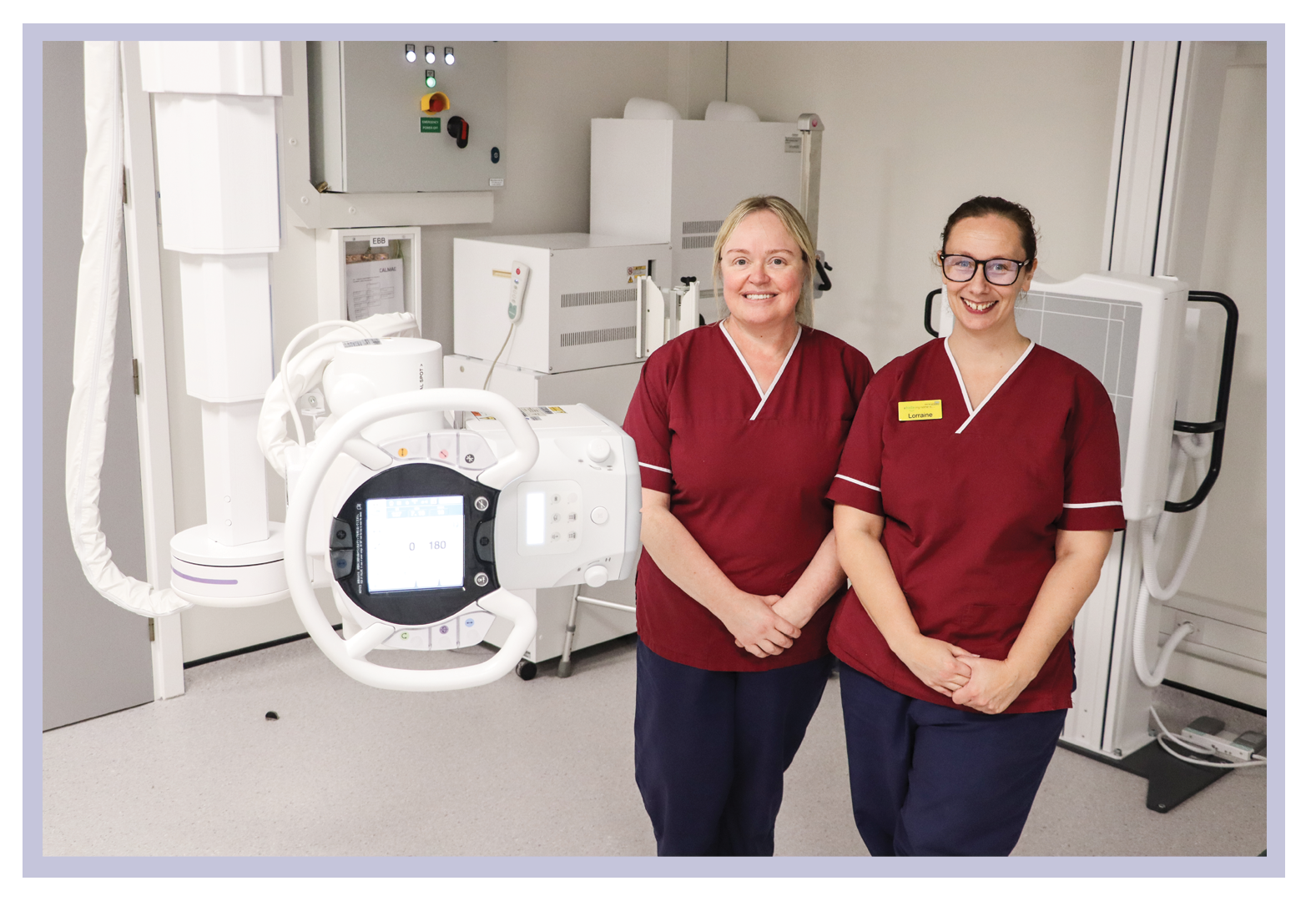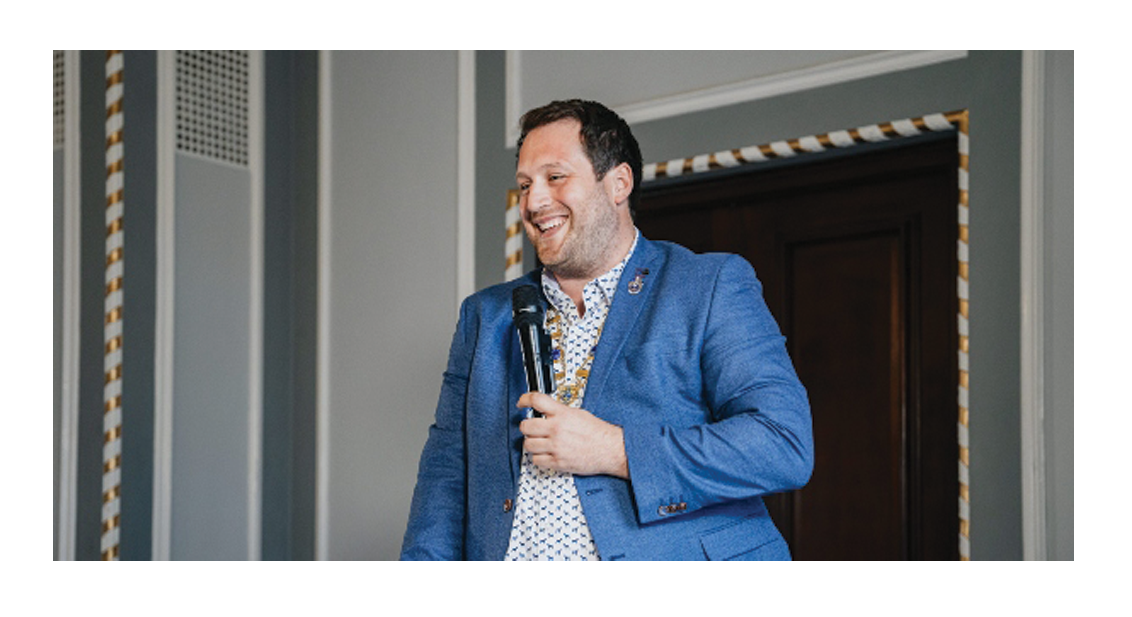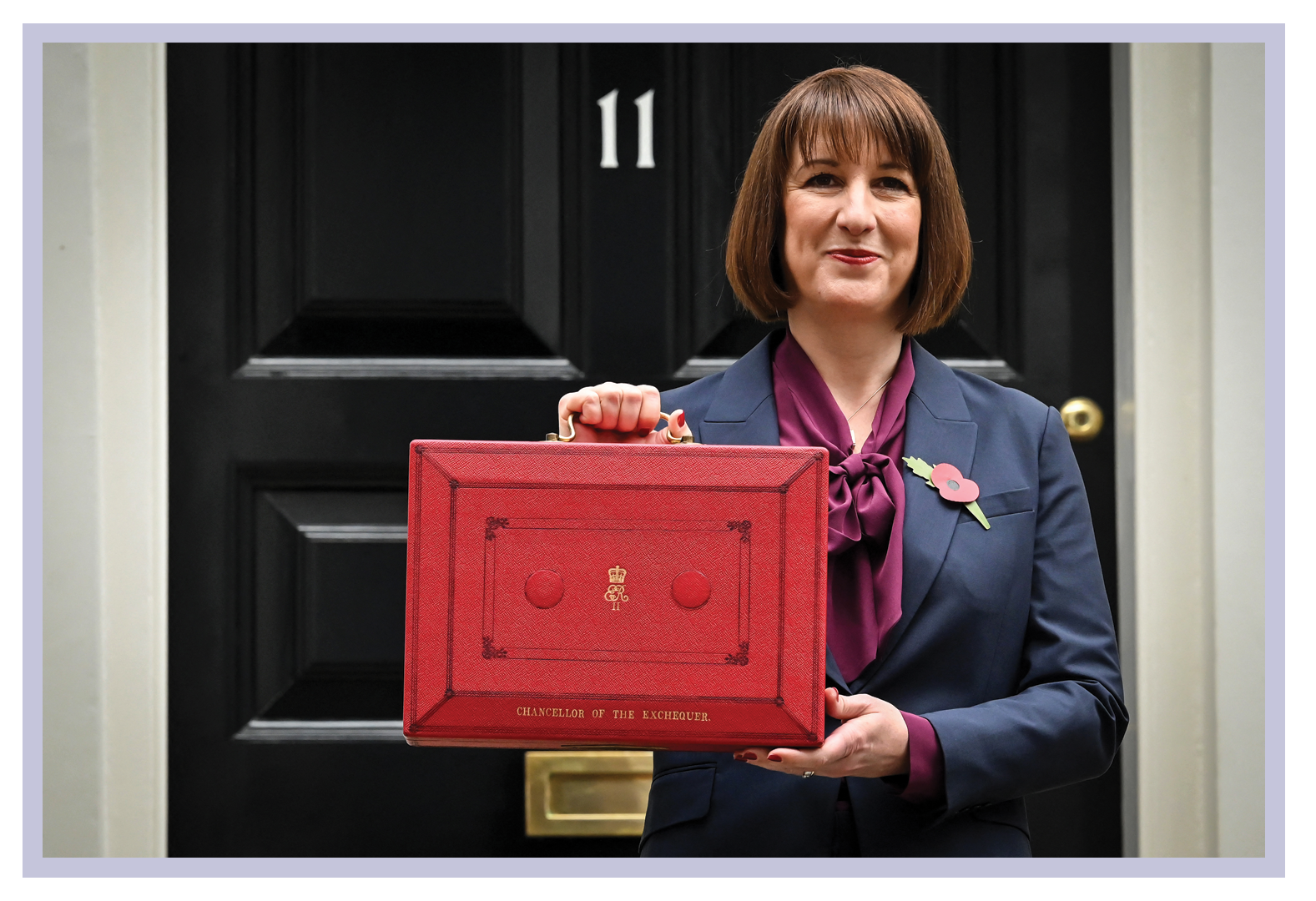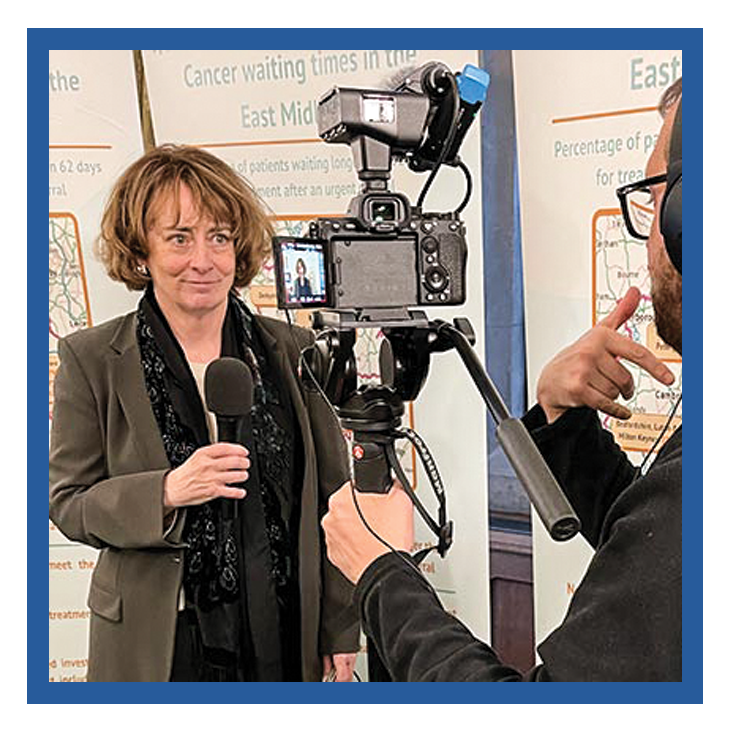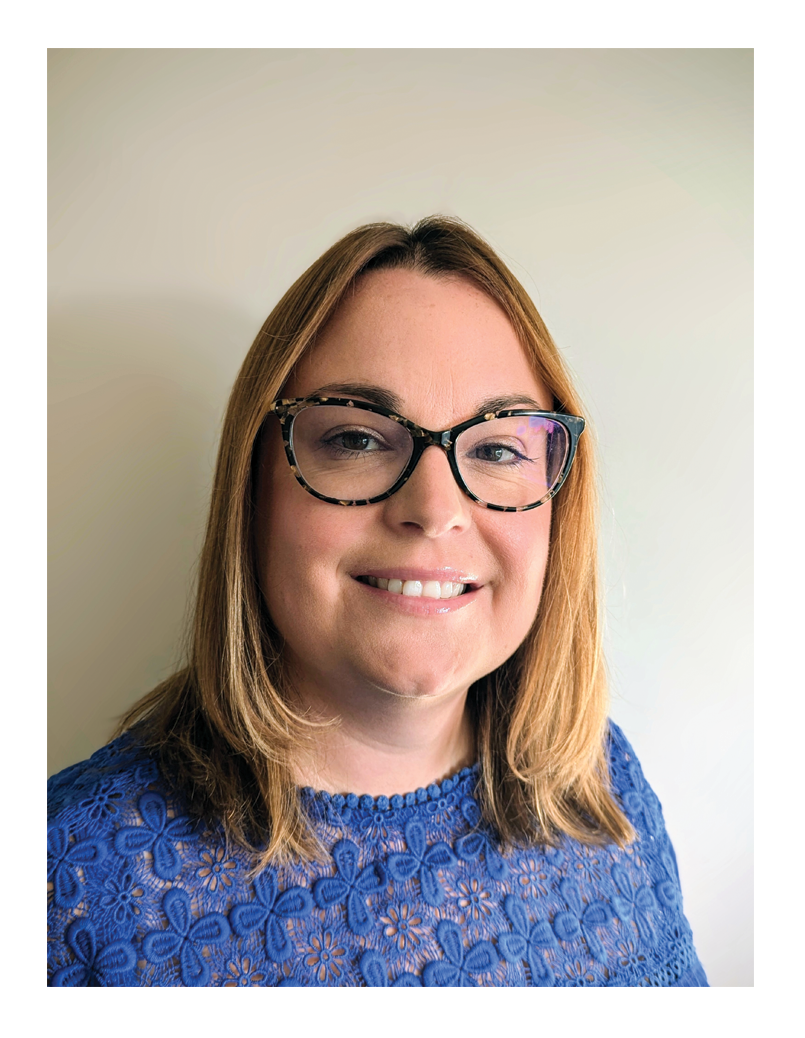News
Briefing (COPY) (COPY) (COPY) (COPY) (COPY)
Teesside Hospital rolls out AI for X-rays
Radiology advanced practitioners Clare Butt (left) and Lorraine Hollings
Radiology advanced practitioners Clare Butt (left) and Lorraine Hollings
Teesside Hospital has made a significant investment in artificial intelligence for chest X-rays to speed up diagnosis and treatment of lung cancers.
The technology will help radiographers and other healthcare staff at the South Tees Hospitals NHS Foundation Trust identify abnormalities in chest examinations.
Dr Tracy O’Regan, professional officer for clinical imaging and research at the SoR, explained that the NHS England AI Diagnostic Fund was progressing with several trusts now entering the phase of deployment of AI software to assist with the detection of pathology on chest X-ray, chest CT, MSK X-ray or CT Brain.
She added: “NHSE has also commissioned a rapid service evaluation of the deployment, which should provide evidence about the effectiveness, efficiency, acceptability and trustworthiness of those systems in a range of settings.
“This is an exciting time for Diagnostic Radiographers, who are at the forefront of providing person-centred care and information, and enabling informed consent for patients in those departments.”
SoR members in Wales accept NHS pay award
SoR members based in Wales have ‘decisively’ voted to accept the latest NHS Wales pay award offer, a move that will raise radiographers’ salaries by 5.5 per cent.
The Welsh government announced the pay award for staff under the NHS Agenda for Change structure in September.
This pay increase will cover all bands and will be backdated to 1 April 2024. During a recent SoR consultation, it was revealed that 81 per cent of SoR members working in Wales supported the rise. The SoR UK Council has also recommended accepting the pay award.
The award formed part of the recommendations from the independent NHS Pay Review Body.
Caroline Hurley, SoR national officer for Wales, said the pay rise was just the first step in a long process to ensure steady recruitment and support of radiographers. “While this pay increase is encouraging, it is only the beginning of a much-needed journey to recruit and retain enough radiographers to serve our patients effectively,” she told members.
World Radiography Day 2024
SoR president Tom Welton
SoR president Tom Welton
World Radiography Day is an important event in the calendar of SoR members and a perfect opportunity to promote their hard work to the world.
Taking place each year on 8 November, the date of the discovery of X-radiation by Wilhelm Roentgen in 1895, World Radiography Day (WRD) is a chance to celebrate and recognise radiography professionals and support workers across the globe.
As part of the day, it is the role of SoR CEO Richard Evans and president Tom Welton to promote radiography to the world. “World Radiography Day is an opportunity to place specific focus on the profession each year,” Richard said ahead of WRD 2024. “It’s really nice, in addition to our ordinary work of promoting the profession – which obviously goes on 365 days a year anyway – to have a day with specific focus.”
“It’s all about raising awareness,” said Tom, current president of the society, who was inaugurated in July. “Let’s be proud of our profession; let’s push it forward and know that we’re the ones to do it.”
SoR welcomes health investment in Labour budget, despite not addressing ‘fundamental causes’
Chancellor of the Exchequer Rachel Reeves with the red budget box
Chancellor of the Exchequer Rachel Reeves with the red budget box
The Chancellor of the Exchequer announced funding of £22.6bn for day-to-day NHS spending in last month’s budget.
The funding will support the delivery of 40,000 elective appointments each week, one of the core aims of the government in reducing waiting times.
While the decision has been welcomed as “very good news”, the SoR said the only way to genuinely cut long waiting lists was a focus on the recruitment and retention of radiographers, both Diagnostic Radiographers and Therapeutic Radiographers.
A further £1.5bn has been allocated to new surgical hubs, diagnostic scanners and beds across the NHS to create more treatment capacity, and £100m has been earmarked for 200 GP estate upgrades.
“But the new investment – however welcome – must address the fundamental cause of waiting lists,” warned Richard Evans, CEO of the SoR. “Tech needs people. There is a chronic shortage of radiographers. Capital investment in equipment will not deliver for patients without a plan for more radiographers.”
Quarter of radiotherapy machines will be out of date by end of the year
Professor Price being interview by ITV News
Professor Price being interview by ITV News
Analysis by cancer charity Radiotherapy UK has revealed that a quarter (25 per cent) of radiotherapy machines will be out of date by the end of the year.
The figures highlighted the “urgent need” to invest in modern, accessible radiotherapy across the UK, the charity said. Updating older machines and supporting the radiotherapy workforce could unlock 87,500 extra appointments every year, it added.
Meanwhile, the latest NHS England cancer waiting list data, released on 10 October, revealed that, in July alone, 9,398 cancer patients waited 195,638 days beyond the NHS’s 62-day waiting target.
Professor Pat Price, oncologist and chair of Radiotherapy UK, said: “Cancer treatment delays are more than numbers or not hitting targets – they can mean cancer growing and patients getting sicker, requiring more complex treatment with more severe side effects, and can eventually mean people dying needlessly.”
Getting It Right First Time: Interventional Radiology Review
Gillian Kitching
Gillian Kitching
The Getting It Right First Time (GIRFT) project has recently appointed Gillian Kitching, an interventional radiographer, to its team to continue the process of evaluation of the role in the UK.
Gillian is interventional radiology manager for the project alongside clinical lead Dr Alex Barnacle, a consultant radiologist based at Great Ormond Street Hospital.
They will work together to perform site visits and produce reports for individual hospitals, which will feed into a national report on the provision of IR services.
GIRFT seeks to perform in-depth reviews of different services, benchmarking trusts against each other and against national data sets. Doing so will help to improve services and address health inequalities, Gillian explained.
Earlier this year, the NHS England GIRFT programme announced a review of interventional radiology services across England, the first since its inception. This follows a more general review of radiology in 2019 – in which interventional radiology received only a brief mention.
Image credits:
North Tees and Hartlepool NHS FT
Getty Images
Eva Slusarek
Read more




